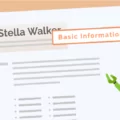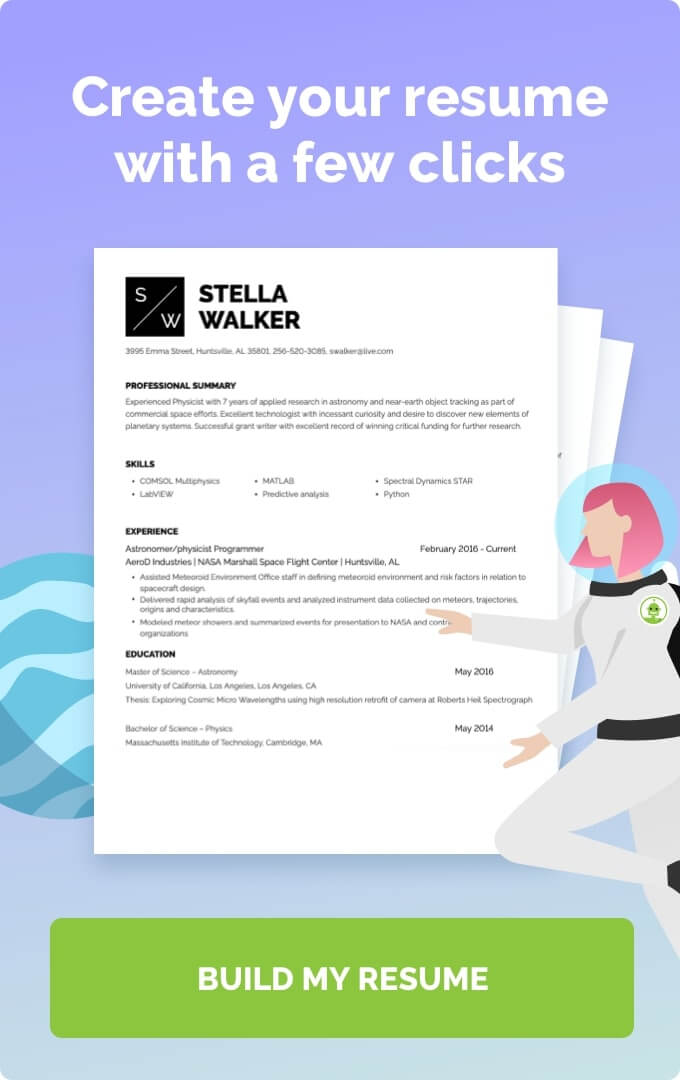Unsure how to respond when you get a job offer? This guide gives expert insight on how to negotiate, accept, or decline your next job opportunity.
Table of Contents
 Introduction
Introduction
A job offer is both a triumph and a new challenge. You’ve reached the end of the rainbow…but you haven’t reached the pot of gold quite yet. What needs to happen next?
Now, it’s time to seal the deal. That means deciding whether or not to accept the offer, negotiating salary, and getting on the same page with your soon-to-be employer.
There’s a lot to consider and do once you receive a job offer, and there’s an appropriate way to handle every part of the process. This post is all about handling a job offer with panache, including how to appropriately respond to the offer, how to effectively negotiate, and how to set yourself up for success on the first day.
 What Is a Job Offer?
What Is a Job Offer?
Let’s get clear on what we mean by “job offer.” A job offer is your official invitation to become an employee at an organization. The job offer will typically come in writing, and will include the details of your employment offer, including salary, benefits, responsibilities, and the contact information of your reporting manager. It may also include details like your desired start date, anticipated work hours, and other company-specific details.
 The Job Offer Process
The Job Offer Process
Typically, here’s how the job offer process works:
- Receiving the job offer:
This is when you receive the offer from the hiring organization.
- Responding to the job offer:
This is your response to the offer. You may accept, decline, ask for more time, or ask to negotiate certain points of the employment contract.
- Negotiating:
If you’d like to ask for a higher salary, more paid leave, or to make any other changes to the terms of employment, you may have a period of negotiation before officially accepting the offer.
- Starting the job:
Following successful negotiation or an acceptance, it’s time to get to work!
Let’s dig a little deeper into each part of the process.
 When You Receive a Job Offer
When You Receive a Job Offer

Break out the champagne! This is the exciting part: when you receive the actual job offer. It will typically come in writing (via an email or letter) and will include the details of the offer.
How soon do you need to respond? According to expert Amanda Haddaway, managing director of HR Answerbox, “Many job offers request a response within a certain time period (two weeks is fairly standard). If you ultimately want to take the job, go ahead and respond as soon as you can.”
If you want to think about the job offer for a couple of days, do respond right away to acknowledge that you’ve received the offer. If you believe you may need more time to consider the job offer, reach out to the recruiter to explain your situation.
But remember: companies typically want to get you started as soon as possible, so it’s best to be respectful and respond quickly.
How should you respond? Let’s dig in.
 How to Respond to the Job Offer
How to Respond to the Job Offer
 The ball’s in your court now, and it’s time to decide whether or not to take the offer. Here are some tips for making your final decision.
The ball’s in your court now, and it’s time to decide whether or not to take the offer. Here are some tips for making your final decision.
Decide Whether to Accept or Decline a Job Offer
Receiving a job offer doesn’t mean you need to accept it. For example, you may have received multiple offers. Or maybe you’re on the fence about whether the job is the right fit for you.
According to Kim Ann Curtin, executive management consultant and founder of The Wall Street Coach, you must assess your needs first. “Remember: this isn’t about friendship or loving the people who are hiring you,” says Curtin. “If you put yourself in a position where you’re not earning the money or able to live the lifestyle you want, then you will be unhappy later.”
Take the time to think about why you want a job, and whether or not this job is the right fit.
For instance, do you want to establish yourself in the field? Are you looking for a high-paying job so you can pay down student loans? Or are you re-entering the workforce after having a baby? Are you more interested in job stability or in career progression? Your unique circumstances and objectives play a big part; compare your priorities with what you know about your potential new job.
How to Accept the Job Offer
Your acceptance of a job offer isn’t assumed. It’s necessary to submit an official acceptance letter.
Your acceptance letter should follow the format of a traditional business letter. Include a salutation, acknowledgement of the offer, and officially note your acceptance. Unless the offer specifies otherwise, submit your letter to the HR manager.
If you’d like to accept the offer but would like to negotiate (more on the process below), you’ll want to submit a counter offer letter to the HR manager. This allows you to accept the offer on a contingent basis.
How to Decline the Job Offer
If you decide to decline the offer, do so officially with a letter. Not only is it good manners, but it helps avoid burning bridges. After all, you never know when you might want to circle back to the organization in question.
Be respectful, but remember: there’s no need to apologize.
Per Curtin, many people have a tendency to qualify their decision. “It’s not necessary. It’s ok to say ‘I decline this opportunity.’ You don’t need to say why. It could be in your best interest not to, because you might not know about future opportunities.”
 How to Negotiate a Job Offer
How to Negotiate a Job Offer

Few things in life are perfect, and job offers are no exception. It’s very common to want to see a few adjustments to your offer—perhaps you’d like to ask for higher pay, better benefits, etc.
“I’m a firm believer that everything is negotiable,” says Haddaway. “…if the compensation and/or benefits are less than you expected, have a conversation with your recruiter to find out if there’s any room for negotiation.
It’s helpful to have in mind what you want to get out of the negotiation process. If you’re hoping to get a huge increase in pay, it may not be possible, so make sure your expectations are realistic. In many organizations, paid leave (PTO or vacation) are somewhat negotiable, so that may be an option to also discuss with the recruiter.”
As Curtin adds, “Get clear about your non-negotiables, because they are going to push back. What can you do without, and what can’t you?”
 FAQ for How to Respond to Job Offers
FAQ for How to Respond to Job Offers
- Q: Can You Use One Job Offer to Negotiate a Better Salary/Benefits on the Other?
A: Can you use one job offer to angle into better pay or benefits from another? You can try, but it may or may not have an effect.
Haddaway advises, “It depends. Some companies are receptive to what other organizations are offering and may have flexibility to match that offer or even exceed it a little. However, other firms are paying in accordance with a structured compensation scale or plan and may not be able to exceed the range that they have already offered.”
How should you get in contact? This type of negotiation would typically be conducted with the HR department via email, with an invitation to discuss further on the phone. In terms of what to share, Haddaway advises sharing a summary of the offer, but notes that it’s probably not necessary to hand them a copy unless asked. - Q: What if a Better Offer Comes Along?
A: Say you’ve accepted one offer and then you get a better one. Can you jump ship?
“This one is tricky. If it’s not a contractual obligation, you may have an out, but you need to handle this carefully,” Haddaway says. “You don’t want to burn a bridge at a company where you may want to work someday. This may also be a negotiation opportunity to share the new offer with the company where you accepted and see if there’s any room to change the offer package before you start.”
Because of the sensitive nature of this type of conversation, Haddaway suggests reaching out to the HR department via phone rather than email; “It’s going to feel awkward, but you won’t know until you ask.” - Q: You Accepted the Offer, Now What Should You Do?
A: Once you’ve accepted the position, how can you prepare for your first day? It’s not unlike preparing for your job interview, actually.
According to Haddaway, preparedness is key, and it’s well worth reaching out to the HR department in advance of your start date. “Do your homework about the job and the company. Try to obtain information on what’s expected prior to starting and what you’ll be doing on your first day, as well as your first week, as a new employee. As you start, try to absorb as much information as possible and make an effort to get to know your team and your manager. Building relationships is key to success in the workplace.”
 Final Tips for Responding to a Job Offer
Final Tips for Responding to a Job Offer
Here are some parting tips to help you out:
 |
 |
 |
|
Consider The Offer Carefully |
Respond Either Way | Negotiate Intelligently |
|
While you want to respond to a job offer fairly quickly, |
Whether you choose to accept or decline a position, do respond in writing. It’s good manners, and it’s a good way to ensure that you don’t burn any bridges! |
Negotiating is a normal part of the process. Before you discuss with a hiring professional, get straight on what you can be flexible about…and |
Receiving a job offer is a satisfying culmination of your hard work during the job application process. However, just because you’ve received the offer doesn’t mean your work is done.
Your conduct during the job offer process can help set a precedent for the job ahead. So be sure to refer to these best practices to make sure that you’re poised to get ahead in your new position!
How have you handled job offers in the past? Is there something you’d do differently next time? Leave a comment and tell us about your experience!








